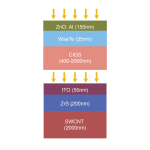Tools Help Energy Leaders Learn Essential Skills in Modeling Power Systems and Provide
a “How-To” Guide on Operating and Maintaining Battery Energy Storage Systems
The National Renewable Energy Laboratory (NREL) and RMI—founded as the Rocky Mountain
Institute—have collaborated to provide a virtual training to support the development
of renewable energy projects and created a how-to guide on battery energy storage
systems. The publicly available virtual training and how-to-guide are available through
RMI’s Energy Transition Academy (ETA) and are designed to help energy leaders with
advancing renewable energy development.
The recently launched self-paced virtual training will help energy leaders learn essential
skills in modeling power systems using NREL’s System Advisor Model (SAM). SAM is a publicly available, free tool that helps decision makers analyze cost,
performance, and financing aspects of energy projects. Its versatility allows various
stakeholders to perform end-to-end analysis that informs decision-making. SAM is a
widely used tool, and the training provided by NREL and RMI will help more people
benefit from the tool.
A comprehensive “how-to” guide on operating and maintaining battery energy storage
systems (BESS) has also been developed—both the SAM training and the BESS guide have
been added to RMI’s Energy Transition Academy (ETA). The BESS guide walks users through
how to plan, design, implement, and maintain a BESS.
“We developed these tools to empower energy leaders to strategically plan and realize
their renewable energy visions and goals,” said Sean Esterly, NREL project manager.
“Through our collaborations, we have heard that users want to learn how to navigate
energy planning tools and processes themselves, either to lead the project development
and implementation process or be better prepared when issuing RFPs [requests for proposals]
and speaking with developers.”
How NREL’s Tools Empower Energy Leaders

energy capacity.
NREL’s SAM allows users to calculate the performance and financial metrics of renewable
energy projects. Like SAM, tools available through RMI’s ETA help energy leaders develop
their skill sets in permitting, building, and regulating renewable energy systems.
Energy storage is fast becoming a cornerstone of the energy transition. Recognizing
the need for energy storage, the collaborators developed the BESS guide to address
barriers to connecting energy storage systems to distribution grids. Detailed information
on and insights about commercially available battery technologies, use cases for energy
storage, and best practices for operation and maintenance will inform the integration
of battery energy storage systems.
As the demand for renewable energy grows, the benefits of tutorials and resources
like SAM and the BESS guide grow. Energy leaders need to be able to make informed,
impactful decisions, and these resources enable the path to sustainable and energy-efficient
solutions.
Access the SAM tool or NREL’s many analysis tools, in addition to the SAM training.
This post was originally published on 3rd party site mentioned in the title of this site






